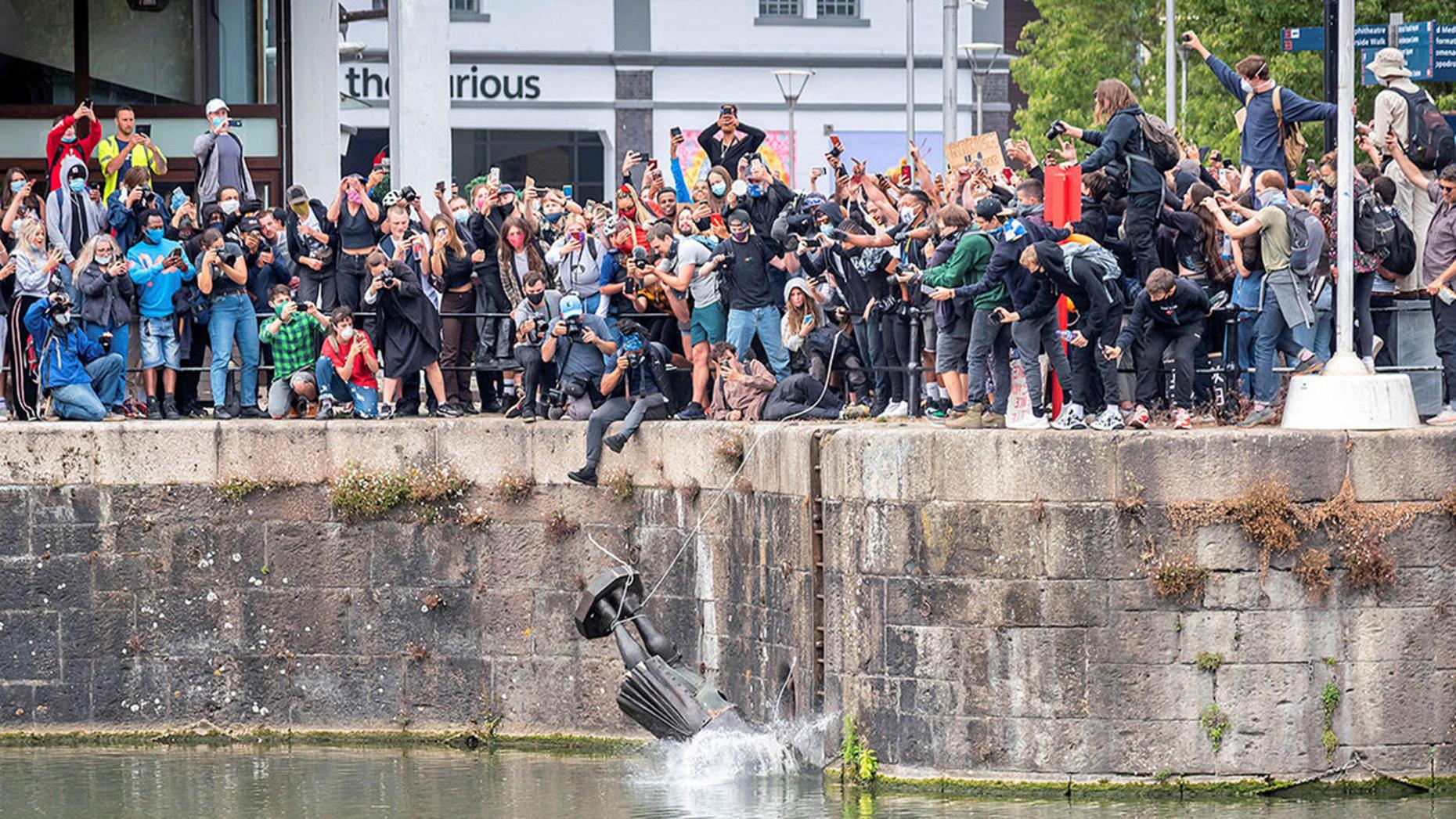There has been a debate raging amongst historians, politicians, perpetually antagonised opinion writers in the press and Twitter content providers (these categories are not mutually exclusive) about the importance of history and what it means to be honest/proud/ashamed of Britain’s imperial past. This old debate has been reignited by the Black Lives Matter protests, and the toppling of the statue of Edward Colston in Bristol.
As someone who teaches several degree-level history modules at Bishop Grosseteste University on Britain’s imperial past I find this renewed interest encouraging because it has sparked much intelligent commentary and debate and reminded us of the existence of free, world-class resources for the study of slavery, such as the Slave Voyages website and the Legacies of British Slave-ownership project. It has also, unfortunately, sparked some less than intelligent and frankly offensive commentary. But this is not a piece about David Starkey.
It is also a helpful reminder to myself and to my students that the study of history cannot and should not be quarantined (if you’ll pardon the phrase) from the world around us. The debate about the nature and legacy of Britain’s involvement in slave-trading and imperialism is partly, and quite correctly, a debate about what kind of nation Britain is now and what kind of a nation it should and could become. The best, most powerful writing that has emerged in the aftermath of the Colston statue toppling has been politically and morally engaged whilst directing readers clearly towards the informative, evidenced-based historical research that underpins it.
This is not merely a commitment to professional historical standards: it is fundamental to the politics and morality of the debate around empire. If you are engaged in a discussion of how Edward Colston or Cecil Rhodes or even Winston Churchill should be commemorated and indeed remembered by the nation as a whole, then you are obligated to inform yourself, to understand them and the context of their actions as clearly as possible given the evidence available.
Slavery was never considered to be a ‘normal’ or ‘acceptable’ state of existence as can be grasped by examining the contemporary horror that accompanied reports of white, British people being enslaved by Barbary pirates. Cecil Rhodes was not so much a beloved imperial hero as a dangerous ideologue whose adventurism launched Britain into the disastrous Second Boer War.
Whilst Churchill was an incredibly complicated figure, who did not separate his liberal political instincts from an imperialist perspective on the world that placed the English-speaking peoples on top of a racially-defined hierarchy of ‘civilisations’. If you cannot (or will not) engage in evidenced and open debate about such things, you are not displaying the respect for ‘history’ that you demand from others.
Part of the joy of studying history at university is the revelation that we are not studying an object at all. The past is not some undiscovered country waiting to be mapped, parcelled out, labelled and occupied forever. It is liberating to learn that the past is a living thing and all history books are products of their time destined, to be, in turn, debated, revised and forgotten.
History is, to borrow from Marc Bloch, ‘an endeavour towards better understanding’ and when approached in this manner, the argument about statues ‘being’ literal history is rendered null and void.
The statue of Colston is not history, it is a historical artefact, an object. Its main use to a historian is as physical evidence that a group of people in 1895, amidst heightened economic and military competition between white supremacist empires, saw fit to commemorate a long-dead mass murderer in the name of Bristolian civic identity.
When the statue was removed, these facts were not erased from history, if anything they became better known. If you are really, truly interested in the historical context that led a select group of people to choose a slave trader as a civic icon then there are a lot of books and even a few degree courses where you can learn all about it.






